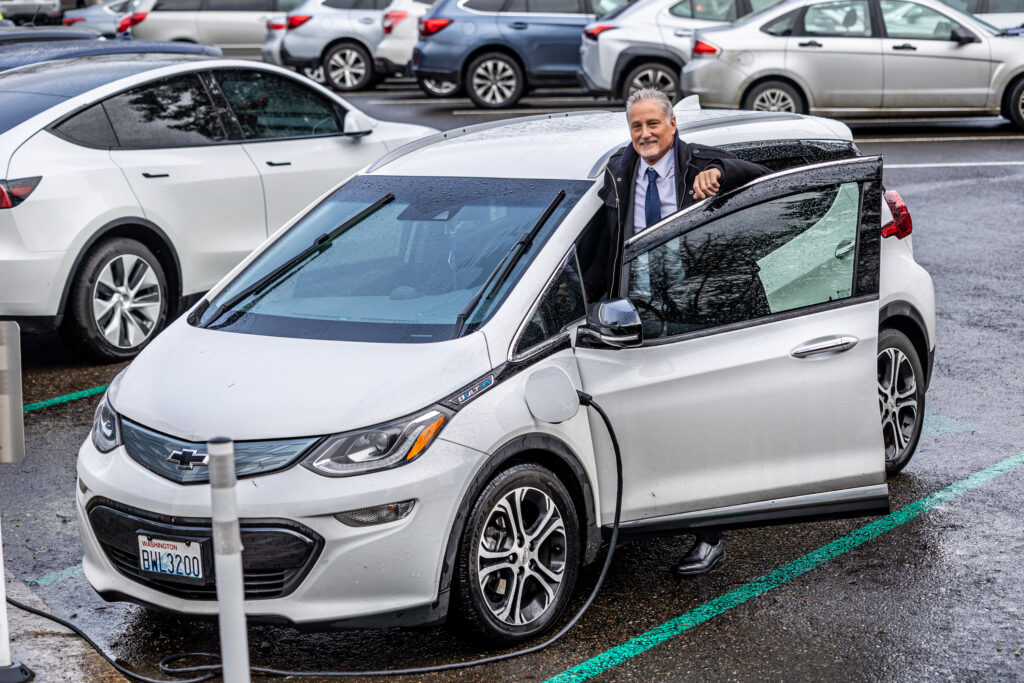OLYMPIA – Don’t get him wrong. Sen. Jeff Wilson, R-Longview, has nothing against electric vehicles. He drives his Chevy Bolt to the state Capitol every day when the Legislature is in session.
But if he’s ever in an accident and the battery catches fire, or his car spontaneously combusts, as sometimes happens – he doesn’t know what to do. Neither do law enforcement agencies, fire departments or tow-truck operators.
That’s the reasoning behind Senate Bill 5812, which would launch a study of hazards posed by EV battery fires, and establish best practices for firefighting, towing, storage and cleanup. The measure passed the state Senate Tuesday and moves to the House for further consideration.
“One of the biggest obstacles to public acceptance of electric vehicles is the special fire hazard they pose,” Wilson said. “Car fires are nothing new, but battery fires are in a class by themselves. You can’t buy a fire extinguisher that is up to this job. Government is trying to encourage all of us to buy electric vehicles, but before we drive off into the sunset, we need to know what to do when EV batteries go into flame mode.”
Wilson’s bill directs the Washington State Patrol to study the problem, with participation from law enforcement, firefighters and the towing industry, and make recommendations for firefighting procedures, equipment and protective gear. In testimony before the Senate Transportation Committee last month, fire officials said EV fires are a rare but growing problem as electric vehicles gain market share.
Special hazards include high voltage, intense heat, toxic fumes, and stubborn resistance to firefighting efforts. In testimony before the Senate Transportation Committee last month, fire department officials said the typical fire truck carries 500 gallons of water, but it takes 12 times that amount to put out the typical EV battery fire. Rather than dousing roadside EV fires, they said they frequently are forced to let fires burn themselves out.
Karen Grove of the Washington Association of Fire Marshals said stranded energy in EV batteries can cause fires to reignite hours or days later – a particular problem for tow-truck operators and storage yards. Fire prevention protocols also are needed for battery recyclers and charging facilities, she said.
Seattle Fire Chief Harold Scoggins said his department responded to 42 fires in 2023 involving lithium-ion batteries, counting bikes, scooters and electric vehicles. All posed different challenges, he said, and all were hard to fight. “We don’t have a good playbook on EV fires,” he said.
Wilson said he hopes his bill will help establish procedures for police and firefighters who respond to EV blazes, and for towing, impounds and storage.











